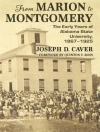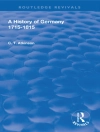All countries, regions and institutions are ultimately built on a degree of consensus, on a collective commitment to a concept, belief or value system. This consensus is continuously rephrased and reinvented through a narrative of cohesion and challenged by expressions of discontent and discord. The history of the Low Countries is characterised by both a striving for consensus and eruptions of discord, both internally and from external challenges. This interdisciplinary volume explores consensus and discord in a Low Countries context along broad cultural, linguistic and historical lines. Disciplines represented include early-modern and contemporary history; art history; film; literature; and translation scholars from both the Low Countries and beyond.
Inhaltsverzeichnis
Introduction: discord and consensus in the Low Countries, 1700–2000
Ulrich Tiedau
1. Pre-modern Dutch identity and the peace celebrations of 1748
Lotte Jensen
2. Gnawing worms and rolling thunder: the unstable harmony of Dutch eighteenth-century literature
Inger Leemans and Gert-Jan Johannes
3. A twice-told tale of a (dis)united kingdom: Thomas Colley Grattan’s History of the Netherlands (1830, 1833)
Raphaël Ingelbien and Elisabeth Waelkens
4. A conflict in words and images, or a conflict between word and image? An intermedial analysis of graphic novel adaptations of Hendrik Conscience’s The Lion of Flanders (1838)
Christine Hermann
5. Language controversies in the Gazette van Detroit (1916–1918)
Tanja Collet
6. ‘Beyond A Bridge Too Far’: the aftermath of the Battle of Arnhem (1944) and its impact on civilian life
Reinier Salverda
7. ‘A sort of wishful dream’: challenging colonial time and ‘Indische’ identities in Hella S. Haasse’s Oeroeg, Sleuteloog and contemporary newspaper reviews
Stefanie van Gemert
8. Reinstating a consensus of blame: the film adaptation of Tessa de Loo’s De tweeling (1993) and Dutch memories of wartime
Jenny Watson
9. Harmony and discord in planning: a comparative history of post-war welfare policies in a Dutch–German border region
Marijn Molema
10. Dutch in the EU discourse chain: mimic or maverick?
Suzie Holdsworth
Über den Autor
Ulrich Tiedau is Associate Professor of Dutch at UCL and an Associate Director of the UCL Centre for Digital Humanities. In addition, he serves as editor-in-chief of Dutch Crossing: Journal of Low Countries Studies.












